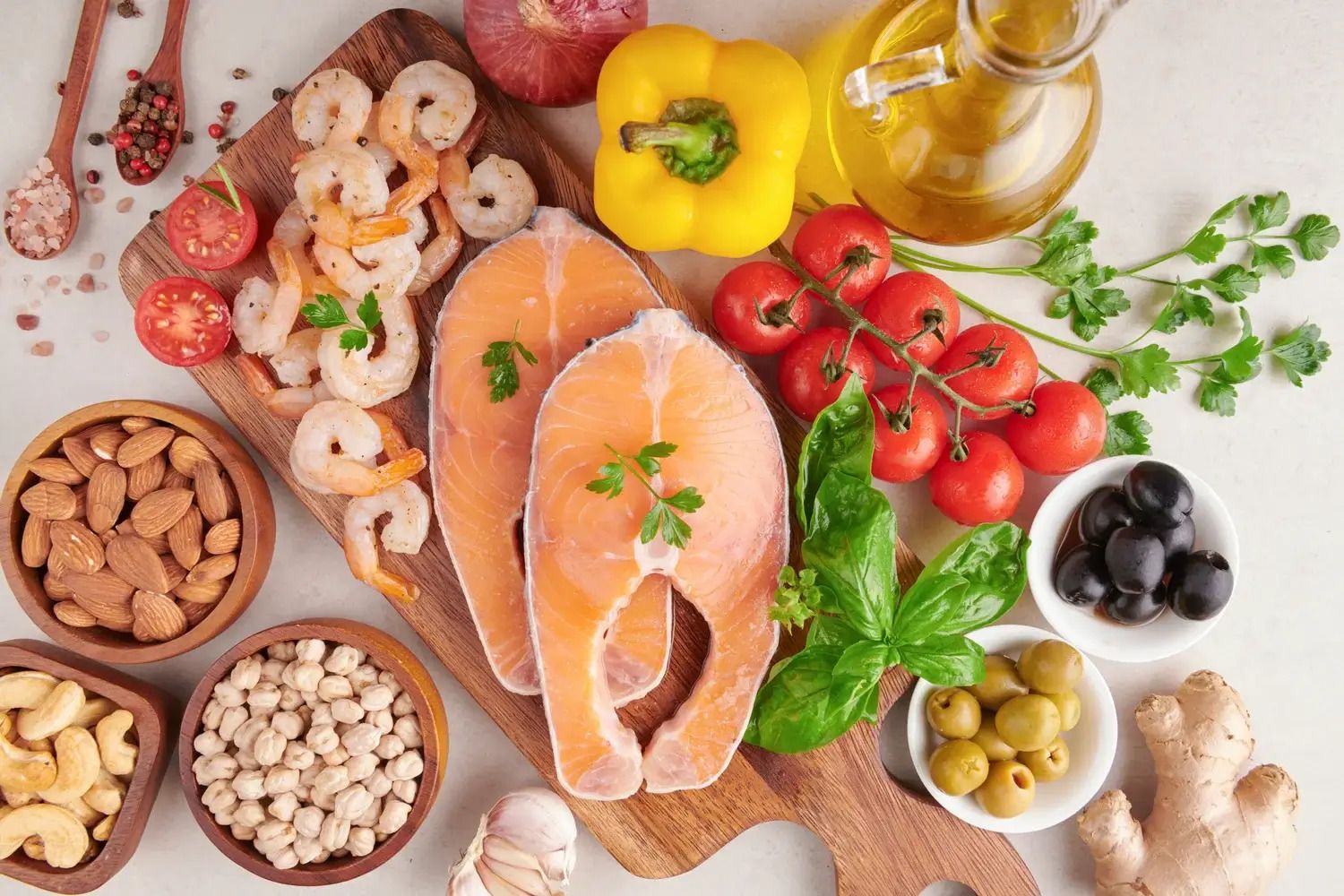Acne is a common skin condition. Many factors influence acne formation, and diet is among them. Let's find out how to overcome acne problems with a balanced diet. Read on to learn more.
Related: Magnesium: The Secret to Healthy Skin
Your Diet and Its Relationship with Acne Development
Refined Foods
Having a Western diet can cause acne development, given the extent to which refined carbohydrates, dairy products, and saturated and trans fats feature in the diet. The high content of omega-6 and low content of omega-3 also contributes to the growth of acne problems.
You might have noticed that people with acne often consume more refined carbohydrates than those without acne. Foods rich in refined carbohydrates are quickly absorbed into the bloodstream, causing increased insulin levels due to high blood sugar levels. Studies have shown that high insulin levels activate your androgen hormones (growth and reproduction hormone) and increase your production of sebum, an oily, waxy substance produced by your body's sebaceous glands in the skin, resulting in more acne. Examples of foods rich in refined carbohydrates include white bread, pasta, rice, honey, sugar, and carbonated drinks.
Similarly, fast foods like hamburgers and french fries increase the amount of fat in the diet and can cause acne development. Studies have shown that developing acne is more likely to occur in people who frequently consume fast food.
Dairy Products
There are also discussions about whether milk and dairy products cause acne development in the scientific community. Although different studies reveal different effects of dairy products on acne development, there has been increasing proof that milk particularly increases the number of growth hormones in your body associated with acne development and causes insulin levels to rise. Hence, milk might cause acne development in some people.

High Intake Of Omega-6 And Low Intake Of Omega-3
A typical Western diet contains high levels of omega-6, which promotes acne development. High levels of omega-6 and low intake of omega-3 fatty acids increase inflammation and push the body into an inflammatory state. This increases the severity of existing inflammatory acne, resulting in more acne development.
Chocolate
Another food discussed in acne development is chocolate. Studies have shown that frequent consumption of chocolate can lead to the development of acne in individuals whose skin is prone to acne. Eating chocolate increases the immune system's reactivity to acne-causing bacteria, worsening symptoms in individuals prone to developing acne.
Anti-Acne Diet
Now that we know all about the foods that can cause acne development or worsen acne symptoms, let’s explore which foods can help get rid of acne and help you have smoother skin.
First, unlike refined carbs, a low glycemic index diet rich in complex carbs and whole grains can create more balanced blood sugar and insulin levels, significantly reducing the development of acne. Individuals prone to acne should follow a Mediterranean diet rich in fruits, vegetables, whole grains, legumes, fish, and olive oil; and low in dairy products and saturated fats.
Another important thing is the presence of probiotic foods in the diet. Probiotics reduce inflammation in the body and support a healthy gut and balanced microbiome. As a result, probiotics are also associated with reduced acne development.
Getting enough fluids is also important for reducing acne problems. This is because dry skin lacking moisture produces more oil, leading to acne development. Staying hydrated by paying attention to how much water you drink will keep your skin hydrated and, in turn, prevent acne and keep your immune system healthy so that your body can fight infection and acne formation. In addition, water is a natural detox drink, making it essential for people with acne problems by supporting the removal of toxins from the body.
The diet's omega-3 and omega-6 content ratios are also highly correlated with acne problems. Omega-3 is an anti-inflammatory nutrient, making omega-3-rich foods important for reducing the chances of developing acne. Similarly, antioxidants help reduce inflammation in the body, helping to relieve acne problems. Studies have shown that acne formation occurs less in people with increased omega-3 and antioxidant intake. Try to balance omega-3 and omega-6 in your diet to prevent acne development. To do this, you can add foods like flaxseed, chia seeds, salmon, walnuts, and avocados to your diet.
Vitamins and minerals are also crucial in the development of acne. Vitamins A, D, E, and zinc are essential nutrients that support your immune system and skin health. Studies suggest eating more foods rich in zinc for treating acne problems. This is because zinc plays a role in reducing existing acne and preventing the formation of new acne by regulating your metabolism and hormone levels. Acne problems are also more prevalent among people with low levels of vitamins A, D, and E. For this reason, people who are prone to acne should include more foods rich in vitamins A, D, and E in their diets.

Here is a short list of the key components of an anti-acne diet.:
- Eat plenty of fiber,
- Drink plenty of fluids,
- Choose complex carbohydrates over refined carbohydrates,
- Eat foods high in omega-3 and antioxidants,
- Eat foods rich in vitamins A, D, E, and zinc,
- Avoid drinking milk and other dairy products if you are already prone to acne.
Best Foods for Acne
Now that we’ve identified the key components of an anti-acne diet, what foods should be included in this diet? Here are some foods that should definitely be included in your anti-acne diet:
- Green tea: It has antioxidant properties and reduces sebum production, an oily, waxy substance produced by your body's sebaceous glands, helping reduce acne development and growth.
- Turmeric helps control blood sugar and increases insulin sensitivity with its anti-inflammatory components. Preventing insulin levels from getting too high reduces the development of acne.
- Zinc-rich foods (such as pumpkin seeds, cashews, turkey, and quinoa): The zinc in these foods helps treat acne by supporting your immunity and regulating your hormone metabolism.
- Fish (such as mackerel, salmon, and sardines): They have an anti-inflammatory effect due to their omega-3 content. The reduced inflammation in the body helps prevent acne development.
- Nuts (such as almonds, peanuts, and walnuts): They have an antioxidant effect with their selenium and vitamin E content and thus prevent acne formation.
If you have frequent acne problems, try to eat these foods often to reduce your acne problems.













